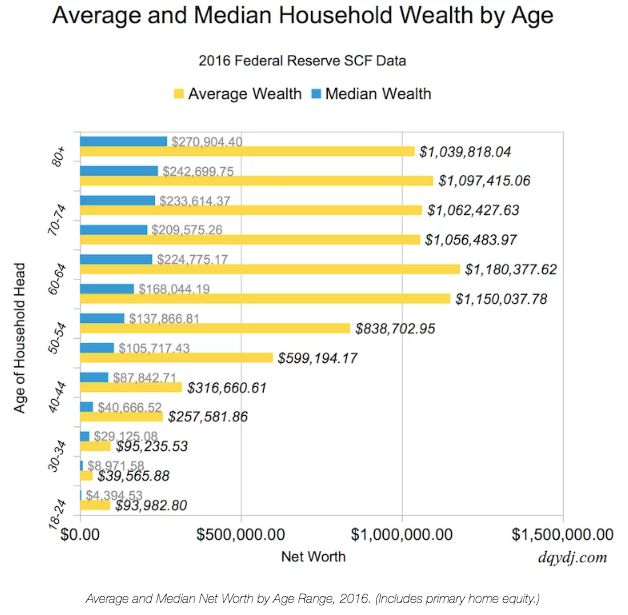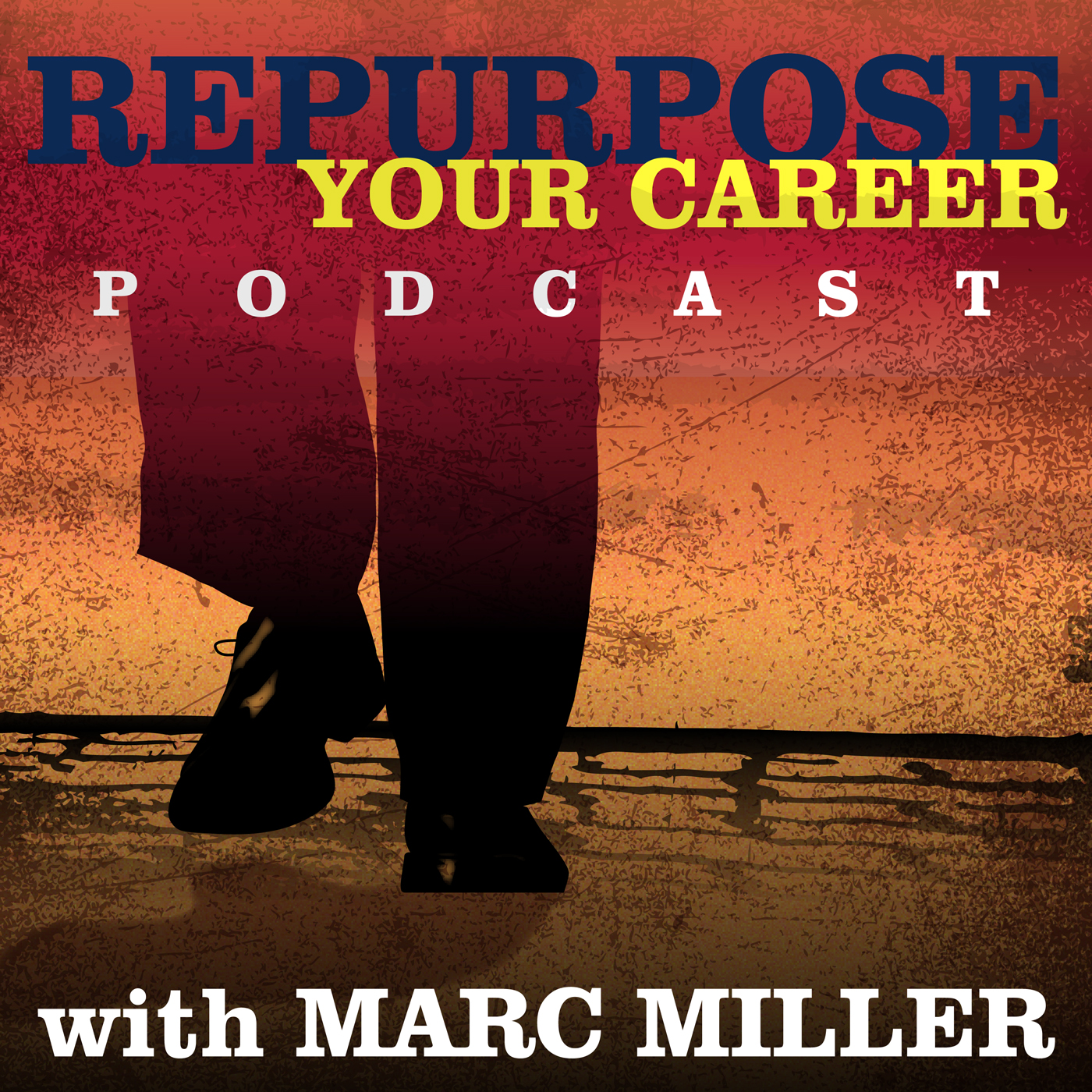Welcome to the World of Ageism
 The world of ageism is welcoming Generation X with a sledgehammer. The youngest of this cohort is now 40 years of age and eligible for protection from age discrimination according to federal guidelines. And as we know, that has not been very effective.
The world of ageism is welcoming Generation X with a sledgehammer. The youngest of this cohort is now 40 years of age and eligible for protection from age discrimination according to federal guidelines. And as we know, that has not been very effective.
The oldest of this cohort has reached the age of 55 and according to the Urban Institute study which stated:
Tracking older adults in the Health and Retirement Study from 1992 to 2016, we find that about one-half of full-time, full-year workers ages 51 to 54 experience an employer-related involuntary job separation after age 50 that substantially reduces earnings for years or leads to long-term unemployment. The steady earnings that many people count on in their 50s and 60s to build their retirement savings and ensure some financial security in later life often vanishes, upending retirement expectations and creating economic hardship. This problem will likely intensify as more people realize they must work longer to enjoy a comfortable retirement.
The world of ageism is welcoming Generation X or Gen X and in many ways, they are less prepared than baby boomers were.
Is Generation X Prepared for Retirement?
I discussed in my post Baby Boomers, How is the Economy Working for You? that this current economy has not been very friendly to the Baby Boomer cohort. As baby boomers hit the traditional retirement age of 65 most are not prepared to retire.
Notice in the chart below that there is a big drop off both average and median wealth below 55 years of age. This includes home equity in household wealth. This comes from the DQYDOJ.com (Don’t Quit Your Day Job) article titled Net Worth by Age Calculator for the United States.
Take note that there are huge gaps in average and media wealth in every age cohort. This is due to the top 10% of each cohort having the bulk of the wealth.
Basically, Generation X is less prepared for retirement than baby boomers just when they are most vulnerable to the world of ageism. It also does not help that many have children entering college at a time of exploding cost of higher education, which is increasing almost 8 times faster than wages. This is why the cost of education is such a hot topic in this election cycle.
If things continue as they are the world of ageism is going to particularly brutal on Generation X.
What Can Generation X Do?
I wrote in my post “Want to Work in Your 70s at Something You Love? Plan Now” that most of us will continue to work, some because we want to but many because they have to. This will be especially true for Generation X.
I am going to discuss what to do in 3 areas:
- Career
- Health
- Finances
Let’s get started!
Your Career in the World of Ageism
Are you prepared for Creative Destruction to destroy either your career or industry? You need to make a candid assessment of where your career and industry are going. Creative destruction will impact so many careers and industries in the next 10 years, you need to determine where you stand and then regularly reaccess.
At the same time, look at your industry and determine what effect ageism will have on your future. If you are in the 45-50-year-old age group you are about to enter the prime spot for age discrimination. I worked with a client a couple of years ago who had never experienced age discrimination. He was in his early 50s, working in IT and could not believe that age discrimination would affect him. He had not encountered negative effects of aging up to this point, so why should it start now?
You need to start preparing a Plan B.
When we hit our 60s MANY OF US will be working for ourselves.
The AARP Longevity Economy Outlook Report states the following:
The impact of the 50-plus population on overall employment is substantial, supporting 88.6 million jobs for all generations in 2018—which is equivalent to 44% of total employment.
This number grows are we enter our 60s. Generation X needs to be prepared.
Your Health – Mental and Physical in the World of Ageism
It is pretty obvious that investing in your physical health makes a lot of sense. I wrote about this in the post Investments in Your Health in the 2nd Half of Life.
Preparing to battle ageism through good nutrition and exercise just makes good sense.
What may not be so obvious is in your mid-40s you are likely to in the trough of the Happiness Curve. That is right, we are happier when we are younger and as we age into our 50s, 60s and beyond we become happier. If you are prone to suffering from depression, like me, the 40s can be a tough time.
You may want to listen to my podcast episode when I interview Jonathon Rauch, the author of the Happiness Curve.
Taking care of your mental health is critical. This may mean talking about your frustrations with life. Jonathon Rauch talked about in the podcast episode that we tend to isolate ourselves when we are at the bottom of the happiness curve.
Personally, I have managed my mental health through diet and exercise. And yes, I can honestly say that I am much happier now that I am in my 60s than when I was in my 40s.
Finances
Just go ahead and admit it. Everyone has been lying to us about when retirement will occur and what it will look like. Most of Generation X will not retire at the age of 65, but that is not necessarily a bad thing. As you can see in the chart above, they likely have not have been able to save enough money. In addition, it is highly likely they will live past 100. Andrew Scott, the author of the 100 Year Life, said in our podcast interview that a 55-year-old today has the mortality rate of 65-year-old from just a few years ago. You have been granted at least an additional 10 years of life.
What are you going to do with that life?
How Retiree Student Loans Come Into Play
You still need to save for retirement, probably more aggressively than you have been. You may want to save for retirement rather than funding your child’s higher education. Yes, you heard me right. There are millions of retirees who are paying off college loans.
Their social security payments are being garnished to pay the loans. How did that happen? Read what Robert Farrington wrote in his Forbes article The Growing Trend Of Retiree Student Loan Debt:
According to a Forbes analysis of Federal Reserve data, student loan debt among consumers in this age group has increased 71.5% over the last five years. This means that, as of the last number-crunching session, seniors ages 60 to 69 owe $85.4 billion in student debt altogether.
You’re probably wondering how this happened, especially considering the standard student loan repayment plan lasts only ten years — and even extended repayment plans typically only last 20 to 30 years. The answer is simple. Like other generations, seniors and baby boomers often choose to go back to school to increase their job prospects or learn new skills. And when they do, they take the path nearly everyone does when they go to college — they take out loans.
Of course, sometimes seniors are left holding the bag when their child or grandchild decides to go to school. This may mean they co-signed on a private student loan for a loved one they wanted to help with college, but it can also mean they took out parent PLUS loans, which come with a fixed interest rate of 7.6%.
If this happened to seniors 60-69, then it can happen to anyone in Generation X.
Be careful in taking on ANY college loan debt, whether it is your own or your children’s debt.
In Conclusion
You need to prepare NOW. Focus on your career, health, and finances and look at the long game. You will keep working into your 70s and possibly 80s and that will be a good thing.
Work now on finding something you want to do and prepare to enter the world of ageism. You are going to live a much longer and healthier life than your parents and their peers. The current career world will shift and your career trajectory is going to slow.
Prepare to work for yourself, and quit relying on your employer for financial stability.
Does this scare you or excite you?




I think governments should really work toward a system which ensures greater well distribution of wealth.
Being as I turned 50 in December, have two kids about to enter college in the next three years, I feel particularly cheerful after this read. : (
You cannot stick your head in the sand and expect things to magically work out. You really need to plan NOW.
Hi Marc,
Les Brown here, and as you well know I have opinions on this topic being your #1 GEN-X Follower.
First I find it interesting that at a time when America had the Highest Marginal Taxation, some of the nation’s greatest wealth was generated. In the 1950s &1960s, the highest marginal tax rate was well into the 90th percentile. Even better, much of this wealth was distributed amongst the citizenry of the nation in the form of real wage growth and the construction of national assets. Neo-Conservative Trickle-down Economics has been nothing but terrible for anyone other than the plutocrats in the top 0.01%.
Here in Canada and I am not certain in the USA, but once you are 65 years old most universities offer you free tuition, so that might be a route to a new late-term career, just don’t think that anybody is going to hire you, your new credentials will have to be directed towards self-employment.
I have personally been experiencing underemployment since I turned 45, (about 6 years now) and part of that has been a combination of structural unemployment combined with ageism as I tried to pivot my career into a sub-field that tends to be dominated by younger employees. Why did I do this, because of my local, my wife’s home town has had its middle management opportunities gutted as larger employers have moved away. Moving away kills my wife’s career.
I also face a more unique conundrum of not having kids entering college, I’m 51 and have elementary grade-schoolers at home. Luckily these future education costs are mostly taken care of through a trust set up by his grandparents.
I am presently working remote gig work, and it brings in some income but it is not consistent and it needs to be more. The best opportunities are in the USA but accessing them as a Canadian is complicated, many opportunities are only open to US Citizens. I am contemplating opening a US-based virtual company to take advantage of these opportunities but that also greatly complicates my tax situation with having to file taxes in multiple countries.
Last comment; You really do have to look after your health. I am making much more of a commitment to my health now. My wife also, she has had an autoimmune issue develop, and this may dramatically change our long-term retirement outlook, potentially taking things off of the bucket list much earlier than planned, and possibly not waiting until 65 for a real slow-down or semi-retirement.
You really are only partly in control of your future no matter how many plans you make.
A Long-Rant Plan “B”, Plan “C”, and even a Plan “D” are now required.
Leslie,
My wife also has a number of health issues that we are now addressing. You would not be surprised by the number of Canadians now living, mostly half time, in Mexico.
Marc